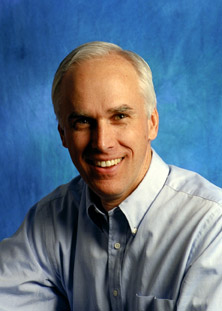
John Ousterhout

John K. Ousterhout is founder and CEO of Electric Cloud, Inc. He is also creator of the Tcl scripting language and is well known for his work in distributed operating systems, high-performance file systems, and user interfaces. Prior to founding Electric Cloud, Ousterhout was founder and CEO of Scriptics Corporation, Distinguished Engineer at Sun Microsystems, and Professor of Computer Science at U.C. Berkeley. He received a BS degree in Physics from Yale University and a PhD in Computer Science from Carnegie Mellon University. Ousterhout is a member of the National Academy of Engineering and a Fellow of the ACM. He has received numerous awards, including the ACM Software System Award, the ACM Grace Murray Hopper Award, the National Science Foundation Presidential Young Investigator Award, and the U.C. Berkeley Distinguished Teaching Award.
10-20x Faster Software Builds
Almost all software projects with more than a few dozen developers are
plagued by slow builds that sap productivity, extend release schedules,
and impact product quality. Parallel builds offer the potential of
significant speedups, but previous attempts at parallelizing builds
have had only modest success, primarily due to the lack of complete
dependency information.
In this talk he will present the architecture of Electric Cloud, a GNU
Make-compatible build system that uses clusters of inexpensive servers
to run massively-parallel builds. The key to deliver correct parallel
builds is an approach that deduces dependencies on-the-fly by
monitoring file accesses during the build, so that the system knows
when it is or isn't safe to run build steps in parallel.
He will also describe other aspects of the system, such as its
versioning network file system and its use of peer-to-peer protocols
for moving file data efficiently. Finally, He will compare this
approach to other approaches such as distcc.